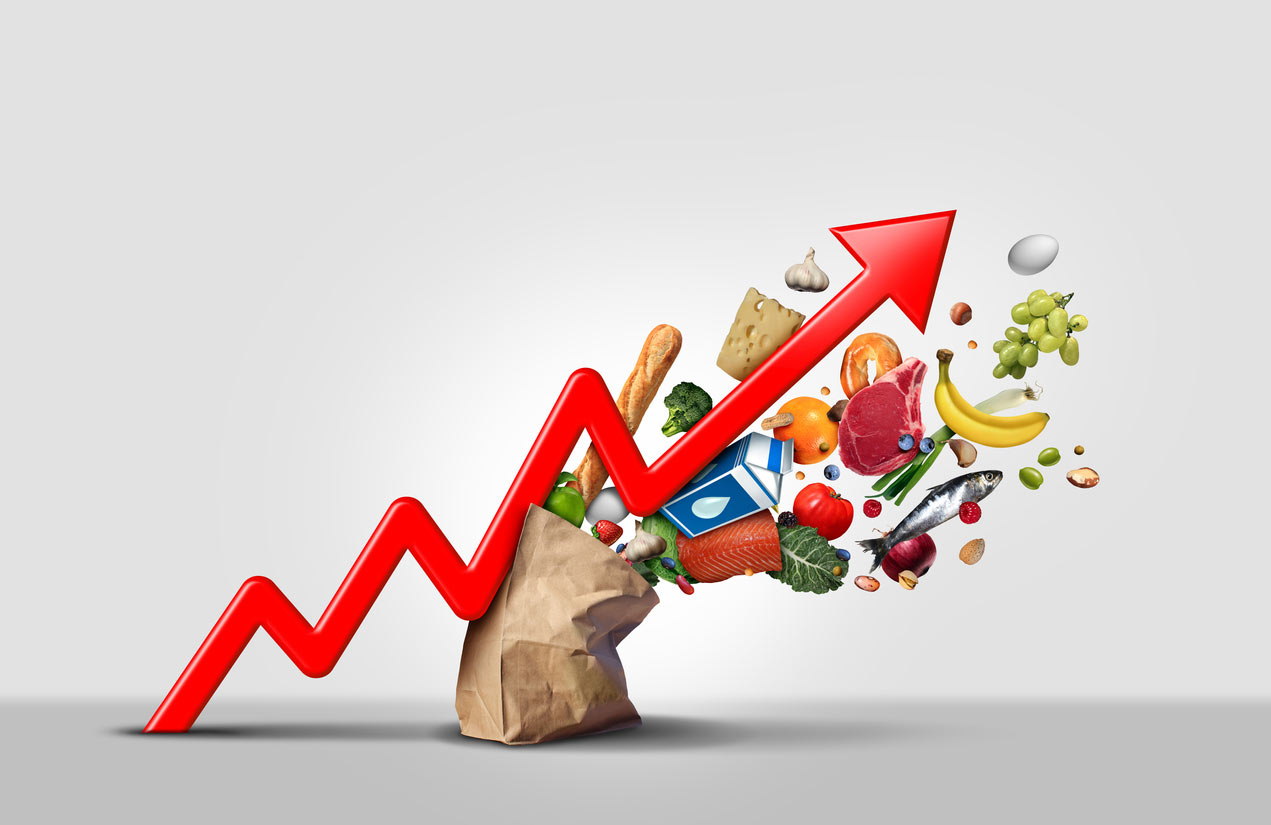If you have been following economic news, you have undoubtedly heard that U.S. inflation recently hit a new 40-year high of 8.6%, with the high cost of food, gas, and housing catalyzing the fresh four-decade high. But then, this is not altogether that shocking; these commodities began to increase in cost during the height of the COVID-19 pandemic, but the increase was so slight that most people likely didn’t even notice. In 2020, the COVID-19 pandemic contributed to historic drops in output in nearly all major economies. And the U.S. was, of course, not speared. In that year, the U.S. gross domestic product (GDP) fell by nearly 9%, the worst single-quarter contraction in over 70 years, according to data published on the White House’s official website, whitehouse.gov. That significant fall in U.S. GDP signaled what was soon to come.
iStock.com/wildpixel
The Economic Foreshadowing That Went Largely Ignored
With inflation at an astonishing 40-year high and a looming threat of recession, it is reasonably safe to say the U.S. economy has seen better days. But this economic downturn didn’t come without warning. The GDP falling by nearly 9% in 2020 signaled troubling financial times were on the horizon. Unfortunately, many of us were too preoccupied with COVID-19 and the associated lockdowns, mask mandates, and social distance requirements to notice or even care. According to a study published by Brookings Institution, a nonprofit public policy organization based in Washington, DC, 2020 was when the U.S. economy started showing subtle signs of weakening. The first sign was slumping retail sales, which declined by more than 8.7% between February 2020 and March 2020, the study notes. And it does not end there; a separate study from the U.S. Bureau of Labor Statistics revealed that COVID-19 severely crippled the job market in 2020 by causing many businesses to shutter, leaving some 9.6 million Americans unemployed.
What a 40-Year-High Inflation Rate Does to the Economy
So that everyone is on the same page, inflation refers to the rate at which the cost of goods and services rises over a specific period. The higher the inflation rate, the worse things are for the stock market, everyday people, and the economy. Before delving into how a 40-year-high inflation rate impacts the stock market, let’s take a moment to discuss what it does to everyday people. A high inflation rate drastically raises the price of goods and services. Those higher prices can translate to paying more for housing, food, and utilities. It can also mean having to fork over more money for nonessential items, such as movie tickets or a new smartphone. All told, high inflation leaves us all with a little less disposable income. But the financial pinch does not end there, mind you. Studies show high inflation can lower the value of pensions, money market accounts, and government bonds, which means you might have a lot less to survive on when the time comes to retire.
How a Soaring Inflation Rate Affects the Stock Market
When it comes to the stock market, perception is everything. Stock market prices and stock market returns hinge on the perceived expectations of future earnings of individual companies and even entire industries. Factors that drive these perceived expectations are varied but generally include the following:
- The consumer price index
- Interest rates
- Politics
- Gross domestic product
- Supply and demand
- World events
All of these factors dictate inflation. If they cause inflation rates to soar, it can lead to the erosion of the dollar, which, in turn, makes gauging the value of the companies that make up market indexes exceptionally challenging for would-be investors trying to decide where to invest their hard-earned dollars. Also, inflation can force companies to spend more on inventory, labor, and other costs, which impacts earnings. For some companies, the impact is so significant that companies have to lower their stock price. The long and short of it is when consumers don’t feel confident about the economy, they spend less and save more. When this happens, the economy contracts. And it doesn’t take long before the effects of that contraction begin to shake things up in the S&P 500 and the Nasdaq Composite Index before moving on to other markets.
High Inflation Doesn’t Last Forever
If history has taught us anything, it would have to be that sustained periods of high inflation do not last forever. The last time the U.S. laid claim to high inflation was during the Great Inflation, which ran from the mid-1960s to the early 1980s. During the Great Inflation, the inflation rate exceeded 5%. Soon after, however, the U.S. regained its financial footing, and the tell-tale signs of high inflation eventually became a distant memory for those who suffered through it. So with a little bit of luck and perhaps a great deal of patience, the U.S. will also survive this record 8.6% inflation rate and continue its reign as an economic superpower.

